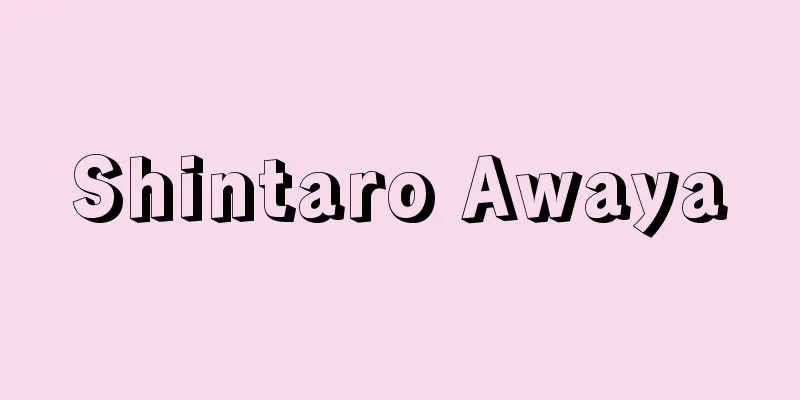First dream of the year

|
The first dream you have in a new year. The custom of "dream divination," in which fortunes for the year are judged based on the good or bad luck of the dream, is ancient. In the past, the first dream was the dream on the night of Setsubun (the morning of the beginning of spring), but due to the calendar system, this shifted to the night of New Year's Eve or New Year's Day, and eventually became fixed as the dream on the night of the second day of the New Year, which is the "beginning of the year." The custom of sleeping on the second night of the New Year with a paper "treasure ship" under one's pillow had already begun in the Muromachi period, and by the Edo period, "treasure ship sellers" had become widely loved as a seasonal feature of Edo. The treasure ship picture of the Seven Lucky Gods and the palindrome song "Nagakiyo no toononoburi no minamezame, naminorifune no oto yoiki kana" also seem to have become fixed at an early date. In any case, as special interest in the first dreams of the year grew, spells were created to try to see such "good dreams," and customs of "dream correction" also arose, such as attaching "nightmares" to treasure ships and sending them down the river, and using pictures of the "tamari," a fictional animal that eats dreams. The common people's tradition of "dream divination," in which dreams are used to determine good or bad fortune, is an old one, but there was a particularly strong interest in the "first dreams" of the year, and so these "first dreams" customs naturally arose. [Toshimi Takeuchi] [Reference] |Source: Shogakukan Encyclopedia Nipponica About Encyclopedia Nipponica Information | Legend |
|
新しい年を迎えて初めてみる夢。その吉凶で年間の運勢を判断する「夢占(ゆめうら)」の習俗は古く、以前は節分の夜(立春の朝)の夢を初夢としたが、暦制の関係から除夜や元日の夜に移り、やがて「事始め」の正月2日の夜の夢に一定したらしい。すでに室町時代には正月2日夜「宝船」の紙を枕(まくら)の下に置いて寝る風習が始まっており、江戸時代に下ると「宝船売り」が江戸の風物詩として広く親しまれるようにもなっていた。七福神の宝船図、「ながきよのとおのねぶりのみなめざめ、なみのりふねのおとのよきかな」という回文の歌などもつとに固定したらしい。ともかく初夢に特別の関心が寄せられると、こうした「吉夢」をみようというまじないが生じ、また「悪夢」は宝船に添えて川に流す風習や、夢を食べるという架空の動物「バク」の絵を用いるといった「夢たがえ」の風習も生じた。「夢占」という、夢で吉凶を判ずる庶民の伝統は古いが、とくに年初の「初夢」には関心が強く、こうした「初夢」の習俗をおのずから生ずることになったのである。 [竹内利美] [参照項目] |出典 小学館 日本大百科全書(ニッポニカ)日本大百科全書(ニッポニカ)について 情報 | 凡例 |
<<: Hallāj (English spelling) al-usayn b. Manūr al-allāj
>>: Vātsyāyana (English spelling)
Recommend
Ribonucleic acid
...Abbreviation for ribonucleic acid. A nucleic a...
Polyposis
...It is thought that there is no possibility of ...
Piper methysticum (English spelling)
…In South America, when making alcoholic beverage...
Malawi (English spelling)
Official name: Republic of MalawiArea: 118,484 km2...
American Renaissance
…He paid close attention to the form of expressio...
《Ut queant laxis》 (English notation) Utqueant laxis
…In Western music, seven syllables are used: do, ...
Anderson transition
When certain impurity atoms are present in a semic...
"Female Orange-eyed Woman"
...This is a dance piece from Kamigata Kabuki of ...
Ammonium soap - Ammonium soap
...For other metal salts, see the Metal Soaps sec...
Lyallpur
...Population: 1.88 million (1995). Formerly know...
Perissocephalus tricolor (English name) Perissocephalustricolor
…For example, male bellbirds ( Procnias genus, En...
Poland - Republic of Poland (English spelling)
A republic in central Europe. It borders the Balt...
Bombax malabaricum (English spelling) Bombaxmalabaricum
...Before World War II, Java and Sumatra were maj...
Engi-no-sei-tai (Engi era)
The title of a Heike song. A small secret. Emperor...
Forced collection - forced collection
Under administrative law, when a citizen fails to...









